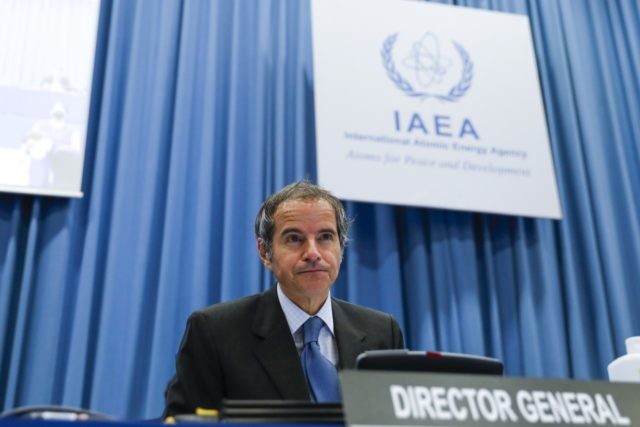Grossi said in March that Iran had agreed to sit down with international technical experts investigating the uranium discovery, the Associated Press reported, but had failed to come up with answers.
He added Iran also hasn’t answered questions regarding another undeclared location.
“The lack of progress in clarifying the agency’s questions concerning the correctness and completeness of Iran’s safeguards declarations seriously affects the ability of the agency to provide assurance of the peaceful nature of Iran’s nuclear program,” Grossi said.
“For objectivity’s sake, I should say that the Iranian government has reiterated its will to engage and to cooperate and to provide answers, but they haven’t done that so far,” he told reporters later. “So I hope this may change, but as we speak, we haven’t had any concrete progress.”
His remarks come as the U.S. and Iran hold indirect talks in Vienna to discuss a return to the shattered 2015 JCPOA nuclear deal with world powers from which former president Donald Trump withdrew in 2018.
As Breitbart reported last month, Grossi warned Iran is enriching uranium to levels that “only countries making bombs” reach, and added that Tehran’s nuclear program had reached the point of no return and could not go back to where it was at the time of the 2015 Obama-led deal.
“Sixty percent is almost weapons-grade, commercial enrichment is 2, 3 [percent],” he said at the time. “This is a degree that requires a vigilant eye.”
Grossi warned that Tehran’s research and development had gone too far.
“You cannot put the genie back into the bottle — once you know how to do stuff, you know, and the only way to check this is through verification [by the U.N.],” he said, adding that it would need to be a “really strong, very sturdy verification system.”

COMMENTS
Please let us know if you're having issues with commenting.